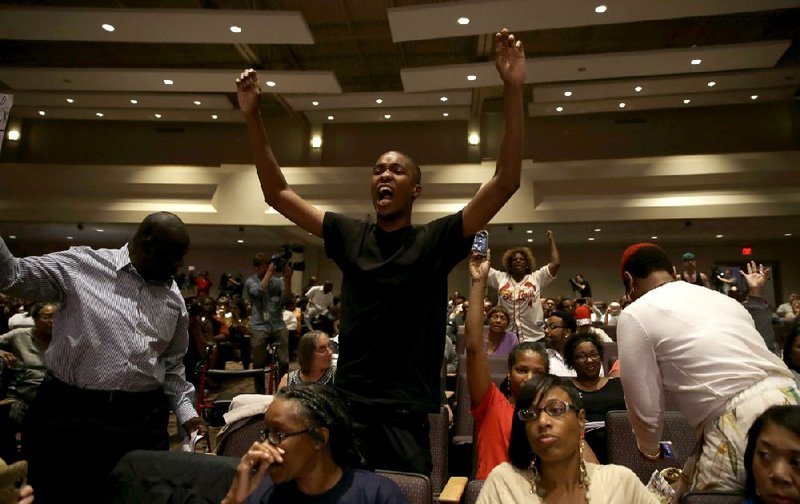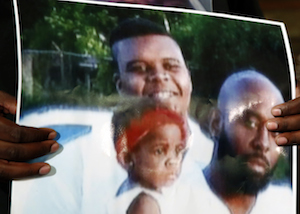FERGUSON, Mo. -- City leaders in Ferguson, where the fatal shooting of an unarmed black 18-year-old by a white police officer sparked days of sometimes violent protests, said they will establish a review board to help guide the Police Department and make other changes to fix the city's relationship with its residents.
But the city's attempt to repair its relationship with its residents got off to a rocky start Tuesday night.
The Ferguson City Council was meeting Tuesday for the first time since the Aug. 9 shooting of Michael Brown by officer Darren Wilson. The shooting exposed an undercurrent of racial unrest in Ferguson and other mostly black communities of north St. Louis County.
Changes the City Council plans to make include reducing the revenue from court fines used for general city operations and overhauling court procedures, according to a statement from a public relations firm hired by Ferguson.
Critics have said reliance on court revenue and traffic fines to fund city services more heavily penalizes low-income defendants who can't afford private attorneys and who are often jailed for not promptly paying those fines.
Many residents expressed doubt about the city's planned changes.
Within minutes of the start of Tuesday night's meeting, several demonstrators stood up and shouted as the council tried to dispose of some routine business.
The first speaker to take the microphone during the public comment period said he was there for the mayor's job. It was a theme echoed throughout, as speaker after speaker expressed anger at the government officials seated on the podium.
"You've lost your authority to govern this community," said St. Louis activist John Chasnoff. "You're going to have to step aside peacefully if this community is going to heal."
Ferguson, a city of 21,000, is about 70 percent black. Its 53-member Police Department has just three black officers. The mayor and five of the six City Council members are white.
The Justice Department announced last week that it was starting a broad civil rights investigation into the Ferguson Police Department, looking for patterns of discrimination. That inquiry is separate from the one into Brown's death, which a local grand jury also is investigating.
A 2013 report by the Missouri attorney general's office found that Ferguson police stopped and arrested black drivers nearly twice as often as white motorists, but were less likely to find contraband among the black drivers.
In the past fiscal year, court fines and fees accounted for $2.6 million, or nearly one-fifth of the city budget. That's nearly twice as much as the city collected two years earlier.
ArchCity Defenders, a St. Louis legal group that represents indigent defendants, recently singled out courts in Bel-Ridge, Ferguson and Florissant as "chronic offenders" among a group of 30 municipal courts where problems were documented.
In Ferguson, defendants described a court system so overwhelmed by crowds that bailiffs would lock the door five minutes after the scheduled start time -- then issue failure-to-appear warrants for those who arrived late.
Councilman Mark Byrne said before Tuesday's meeting that the goal of the proposed changes "is to improve trust within the community and increase transparency."
Information for this article was contributed by Nigel Duara of The Associated Press.
A Section on 09/10/2014

